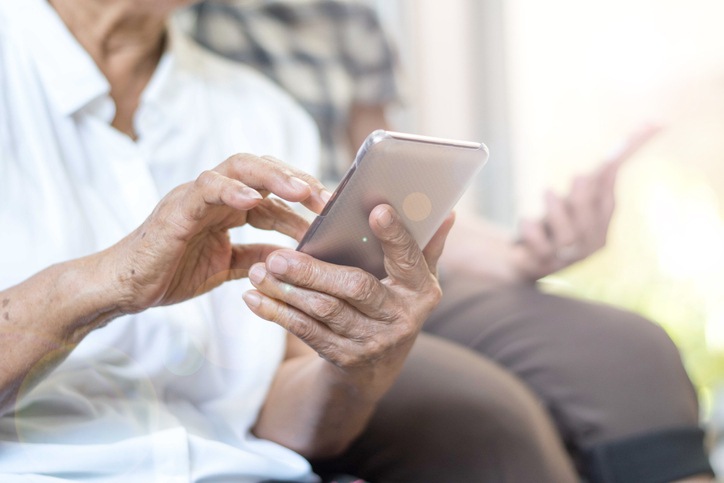
Methods for monitoring multiple sclerosis (MS) depend largely on short, sporadic assessments and may not be able to accurately capture the real-world patient experience. One way to increase patient monitoring and more closely evaluate the real-world patient experience may be to implement smartphone technology. A study analyzed the feasibility and utility of elevateMS, a smartphone application (app) designed to capture real-world MS-related health data remotely, including associations between self-reported MS severity and sensor-based active functional tests measurements, as well as between local weather conditions and disease burden.
The 12-week study included self-referred patients who reported an MS diagnosis, clinic-referred patients with neurologist-confirmed MS, and patients without MS (controls). All three cohorts downloaded the elevateMS app and self-reported physical ability (Patient-Determined Disease Steps [PDDS]) and completed assessments of quality of life (Quality of Life in Neurological Disorders [Neuro-QoL] cognitive, upper extremity, and lower extremity function) and daily health (MS symptoms, triggers, health, mobility, pain) at baseline. Functional tests (finger-tapping, walk and balance, voice-based Digit Symbol Substitution Test, and finger-to-nose) were performed to independently assess MS-related cognition and motor activity. Every time patients completed an active task, the local weather data were also recorded. Linear and mixed-effects regression models were employed to evaluate the relationships between self-reported baseline/longitudinal assessments, functional tests, and weather.
Of 660 patients enrolled in the study, 31 withdrew. There were 495 patients with MS (self-referred, n=359; clinic-referred, n=136) and 134 controls. Median retention was higher among clinic-referred than self-referred patients (25.5 days vs. 7.0 days). The most common MS symptoms reported at least once in the MS cohorts were fatigue (62.6%), weakness (44.8%), memory/attention issues (42.2%), and difficulty walking (41.4%); the most common triggers of symptoms were high ambient temperature (52.3%), stress (50.5%), and late bedtime (44.6%). Significant correlations were observed between baseline PDDS and longitudinal Neuro-QoL scores and functional test performance in patients with MS. Local temperature had a meaningful impact on patients’ test performance.
“App-based tracking may provide unique and timely real-world data for clinicians and patients, resulting in improved disease insights and management,” the study authors concluded.






 © 2025 Mashup Media, LLC, a Formedics Property. All Rights Reserved.
© 2025 Mashup Media, LLC, a Formedics Property. All Rights Reserved.